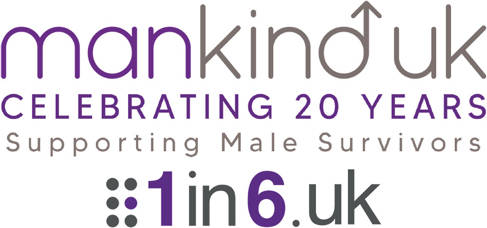This is a copy of the post on the University WEBSITE on 5th June, here: Brighton research reveals hidden sexual abuse of men and barriers to seeking support
MUSE researchers have investigated what prevents men reporting incidents of unwanted sexual contact and seeking support in new report. 5 June 2023
Exploring this overlooked area of sexual abuse, the MUSE (Men’s Unwanted Sexual Experiences) project uncovered not just the extent of the problem but the reluctance of many victims to report incidents through formal routes – such as the police or a GP – as well as the challenges of seeking informal support from family and friends. Research revealed that a key barrier was the perception held by many that unwanted sexual experiences happen to and impact women, and not men.
Dr Carl Bonner-Thompson, senior lecturer at the University of Brighton’s School of Applied Sciences, is one of the researchers behind the project in collaboration with the Male Survivors Partnership and Mankind UK. Alongside University of Brighton colleagues Dr Kirsty McGregor (below) and Dr Jason Preston, Dr Bonner-Thompson interviewed a number of men in both the south-east and north-east of England as part of the project.
Men experience a range of unwanted sexual experiences including child sexual abuse, sexual harassment, sexual assault and rape. Over two thirds (65%) of the men who participated in the study had more than one unwanted sexual experience, with sexual assault and sexual harassment most reported. The majority (68.5%) of perpetrators had a pre-existing relationship with the participant.
The team found that men would seek formal support for the impacts of unwanted sexual experiences (eg. depression, anxiety or drug and alcohol misuse) without formally disclosing incidents. Issues around the fear of not being believed or workplaces not taking reports seriously also impacted on willingness to divulge experiences.
The Team

Dr Kirsty McGregor

Dr Carl Bonner-Thompson

Dr Jason Preston
Dr Bonner-Thompson said: “Through this project we have shed light on the reality of men’s unwanted sexual experiences, and particularly what’s stopping them from coming forward for timely and appropriate help and support. There are multiple barriers, and these can be affected by how old they were then the incident occurred, their relationship with the perpetrator, their perception of what constitutes an unwanted sexual experience and how other people responded to any disclosure. However, we also found that barriers were shaped by society’s understanding of masculinities, gender and sexual violence as well as institutional practices, policies and procedures.”
“Participants identified ideal types of support and ways to access and engage with it. There is a clear need to raise awareness about this issue and improve responses to men when they disclose their experiences. With services for men who are survivors over-subscribed, funding to expand and improve provision is of paramount importance. Crucially, our research demonstrated that different types of men – according to sexuality, class, race, ethnicity and age – experience violence and barriers in different ways, so any interventions, awareness raising, services and policy require approaches that consider the diversity of men and men’s experiences.”
Gary Pleece, CEO of the Male Survivor Partnership said: “The Male Survivor Partnership’s goals are to secure prevention, healing and justice for men and boys through research, advocacy, and capacity building. Funding evidence-based research is critical to the achievement of our goals. It will help us to better understand what leads to sexual violence and why males are reluctant to disclose; increase awareness of the prevalence of male victims; influence institutions and organisations that should protect men and boys to do it effectively. The MUSE research is a vital part of the research we need to drive meaningful change for men and boys affected by sexual violence.”
Lucy Hughes, CEO at Mankind UK and 1in6.uk added: “These findings challenge the cliché that ‘men don’t want to talk about it’. It shows us that men do want to talk about it – the problem is that society isn’t listening. We need to give men more opportunities to be heard and make them aware of the services that are available like 1in6.uk.”
Visit the MUSE project website to read the full report and find out more about this pioneering research. To launch the report, the research team and project partners are hosting an online event on Tuesday 4 July at 5.30 pm. Register here to join the team exploring the key findings with a panel discussion.





Leave a Reply